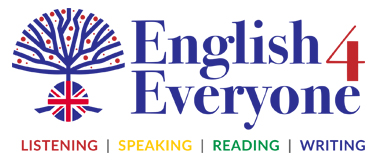Blog
How to Improve Your Understanding of English Phonetics
1. Get a language buddy or an English tutor
When you get oral feedback from an outside listener, your pronunciation mistakes are immediately highlighted and corrected, especially if you are being taught by a private English tutor. Choose someone who lives close to your home so that there is an easy commute to the tuition centre. If you happen to live in Johor Bharu, then you should choose a tuition centre like ‘English for Everyone’, where there is a very experienced teacher and native-speaking private tutor to help you practise your correct pronunciation of English words.
When you are communicating with a language buddy or an English tutor, listen carefully to their voice intonation, pronunciation and stressing of individual words. Also, you can exchange recorded messages with your buddy to allow further analysis and correction of your spoken English.

2. Listen to yourself more
When you are speaking, it is difficult to immediately hear any pronunciation errors. This is because you are concentrating more on the communication process itself rather than the sounds you are physically making.
If you cannot hear errors in your pronunciation of words, it is naturally very difficult for you to make any necessary corrections. Listen to yourself speaking more easily by recording your speech on a smartphone or a computer, and then carefully analyse what you hear to identify any incorrect word pronunciations.
3. Take note of intonation and stress
Accurate pronunciation of English words is more than just mastering individual sounds. It also requires an understanding of intonation and stress. Intonation is the rise and fall of the voice when speaking, while stress focuses upon the emphasis given to particular syllables within words in a sentence.
By regularly reading and listening to poems, speeches, and songs, you will begin to better understand the use of stress within English words and voice intonation. This ensures clearer verbal communication between yourself and others.
4. Pay attention to your tongue
The main difference when trying to correctly pronounce words like ‘slice’ and ‘dice’ is in the positioning of your tongue. When you speak, your tongue adopts certain positions in your mouth in order to make the correct sounds. To improve your pronunciation of individual words, you must become more aware of what your tongue is doing as you try to speak.
Non-native English speakers often find it difficult to make the sounds associated with certain letters like ‘l’, ‘r’ and ‘th’. Therefore, you must regularly practise pronouncing words containing these letters until you master correct pronunciation. As you practise, focus upon the movement and positioning of your tongue.
5. Break words down into sounds
Breaking words down into syllables makes them easier to pronounce, especially if they are long words. For instance, a word like ‘comprehend’ can be broken down into three syllables: ‘com-pre-hend’.
To find out how many syllables are contained within a word, place the palm of your hand just below your chin and then pronounce the word. Counting every time your chin touches the palm of your hand will then show you how many syllables there are within a word.

6. Learn from the experts
There is no substitute for learning accurate pronunciation of English words from a native-speaking English language teacher. So when you enrol today in an English communication class, try to find a fully experienced teacher who will help you to improve all of your English language skills, especially the correct pronunciation of words.
You can also learn better pronunciation through listening to English radio programmes, or by watching films, television and daily news bulletins being given in English. Even though you may not yet understand the meaning of every word being heard, you will still learn how to pronounce them.
7. Practise alone
Most people continue to have pronunciation difficulties because they are afraid of making mistakes, and therefore often only speak very simple and already familiar English.
To boost your confidence when speaking English, you can first practise alone at home. Plan and practise different scenarios, like meeting someone for the first time, placing an order in a restaurant, or asking for directions, and then act the scenario out in front of a mirror so you both hear and see yourself. If you make a recording of yourself as well, this will help you to analyse correct word pronunciation and sentence grammar.
In a Nutshell:
Try to use any of the above techniques whenever you can, and find out which ones work best for you. Regular practice will then help you to attain even better correct pronunciation of all English words.
If are you now ready to improve your understanding of English phonetics and have better pronunciation of all English words, join an English class for adults in Johor Bahru today with ‘English for Everyone’. This class will give you guaranteed success through exciting 1-to-1 English tuition from a native-speaking and fully trained British teacher.
